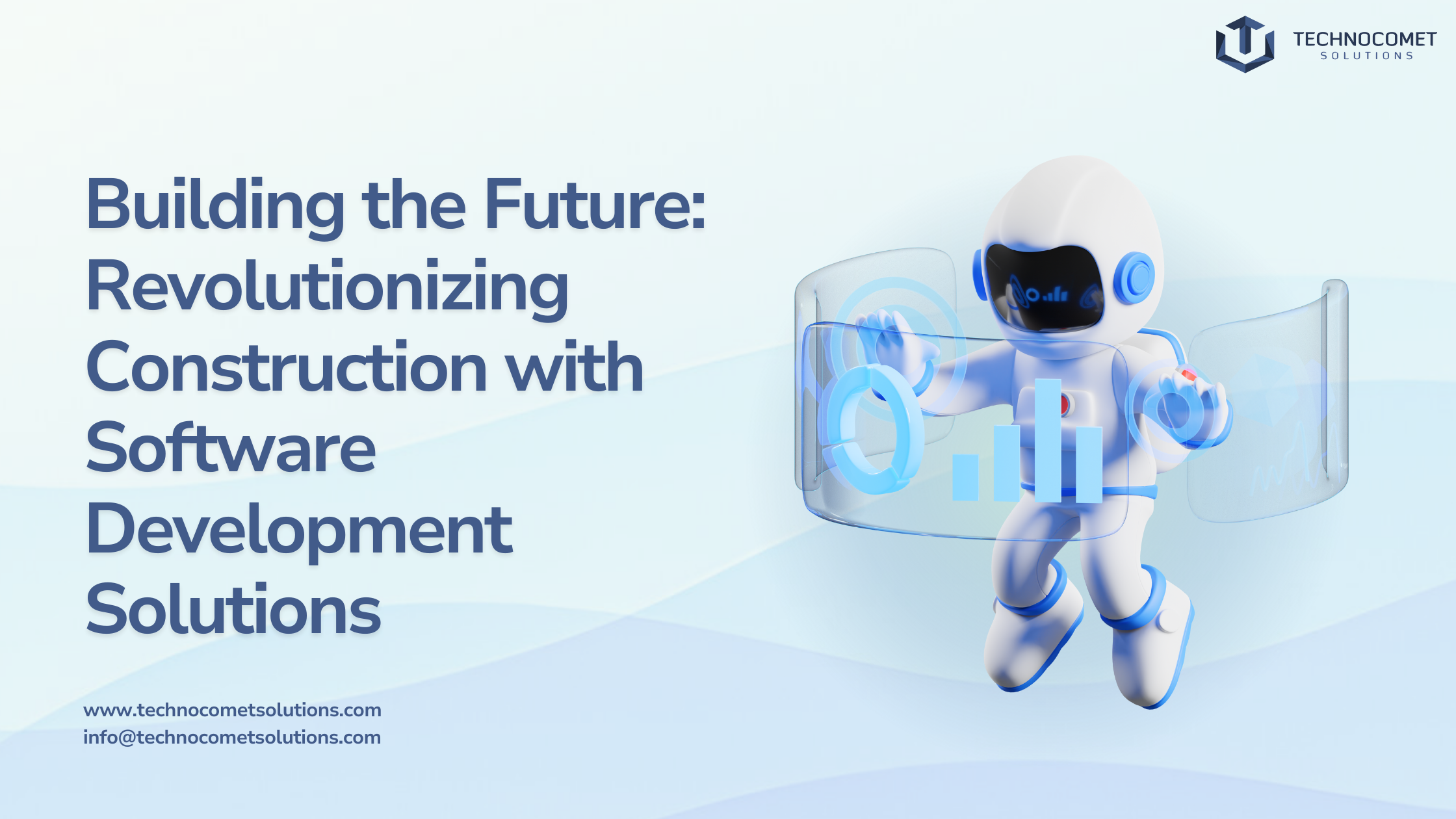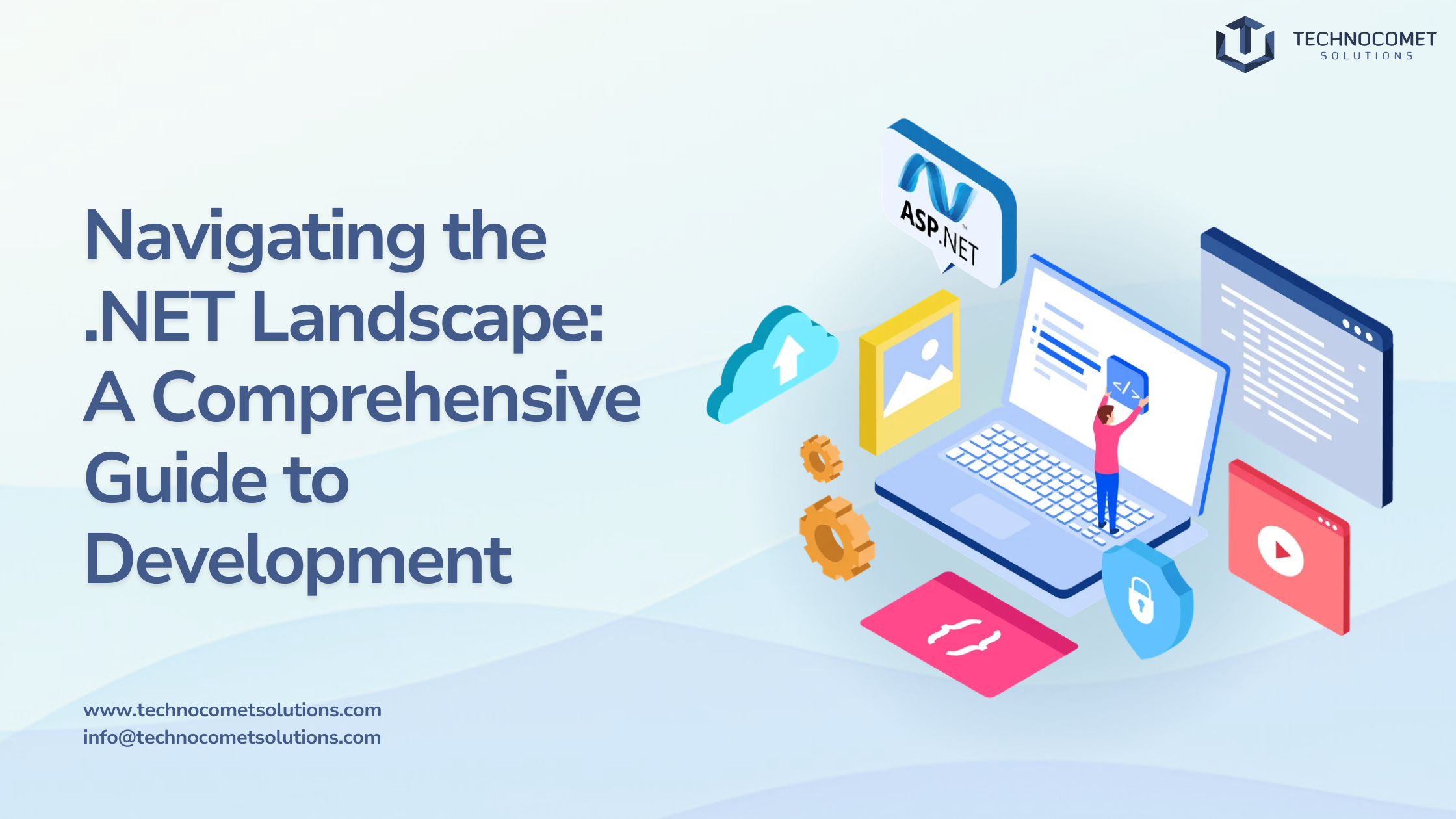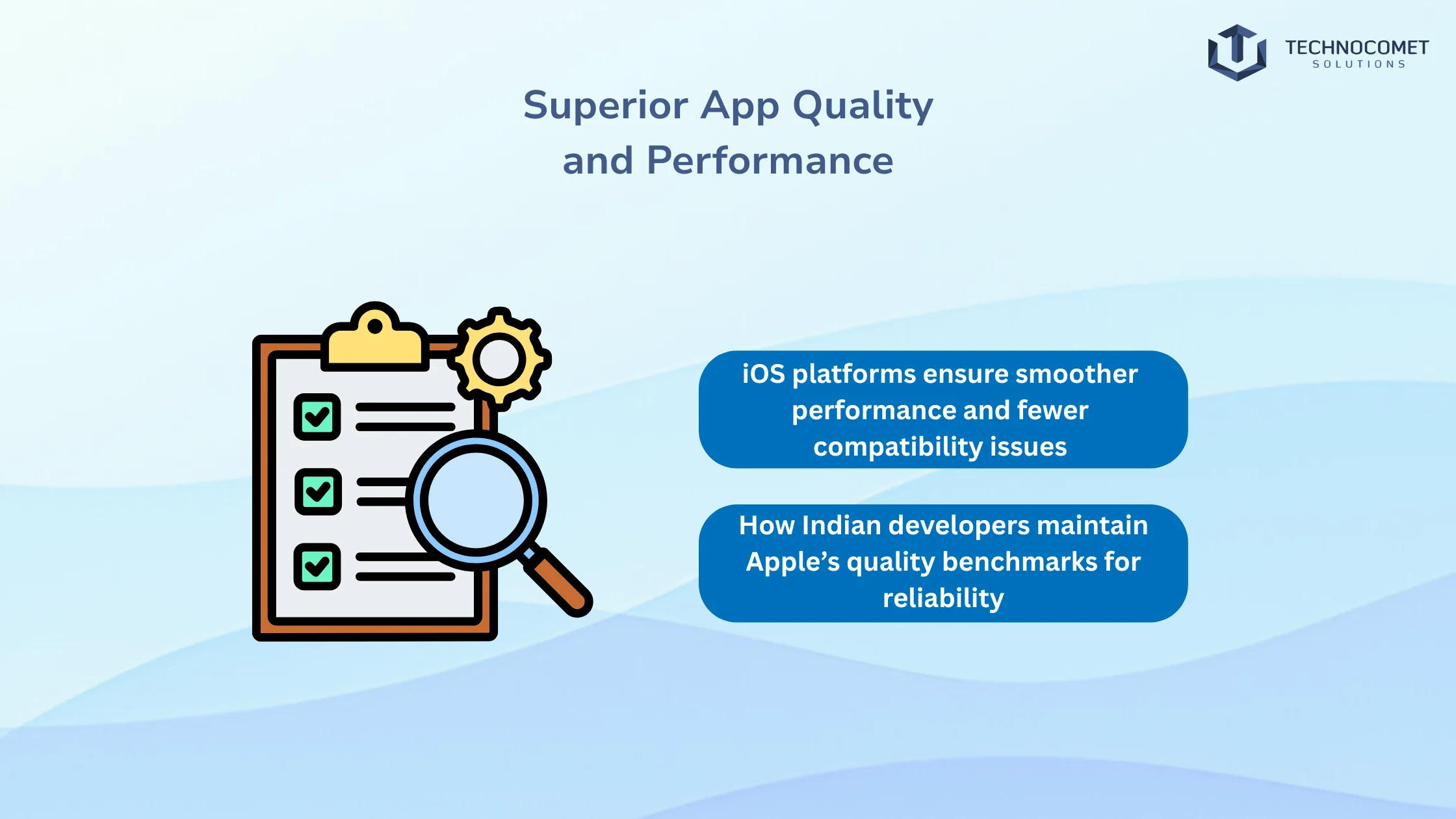Introduction
Construction software development has positioned the construction industry on the brink of transformation. In an era where efficiency, sustainability, and precision are paramount, traditional construction methods are being reshaped by digital technologies. This article explores the profound impact of software development solutions on revolutionizing construction practices.
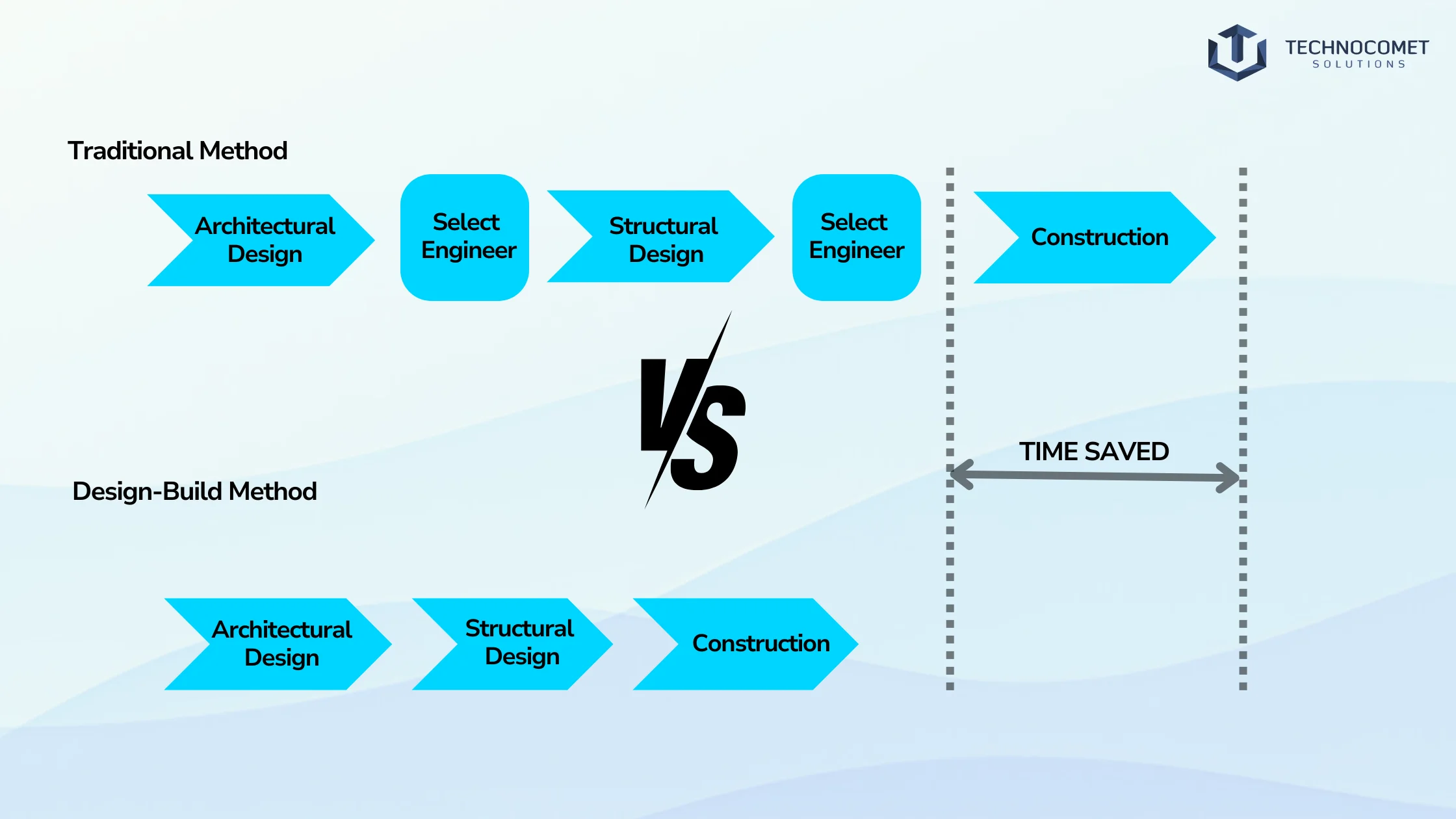
Challenges in Traditional Construction Methods
Inefficiencies in manual processes plague traditional construction methods, leading to delays, errors, and increased costs. The absence of real-time collaboration exacerbates these challenges, hindering project progress and communication among stakeholders. Consequently, cost overruns and delays have become prevalent in the construction landscape.
Role of Software Development Solutions
Software development solutions play a pivotal role in addressing the shortcomings of traditional construction methods. By streamlining project management processes, these solutions enable efficient allocation of resources, scheduling, and progress tracking. Moreover, they facilitate seamless communication and collaboration among architects, engineers, contractors, and clients, fostering transparency and accountability throughout the project lifecycle. Ultimately, construction software enhances productivity and efficiency, driving project success.
Key Features and Benefits of Construction Software
Construction software encompasses a myriad of tools and functionalities tailored to the unique needs of the industry. Project scheduling and planning tools empower stakeholders to create realistic timelines, allocate resources effectively, and anticipate potential bottlenecks. Building Information Modeling (BIM) software revolutionizes the design and construction process by enabling 3D visualization, clash detection, and virtual collaboration. Additionally, mobile applications facilitate on-site management, allowing supervisors to access project data, track progress, and communicate with the team in real time.
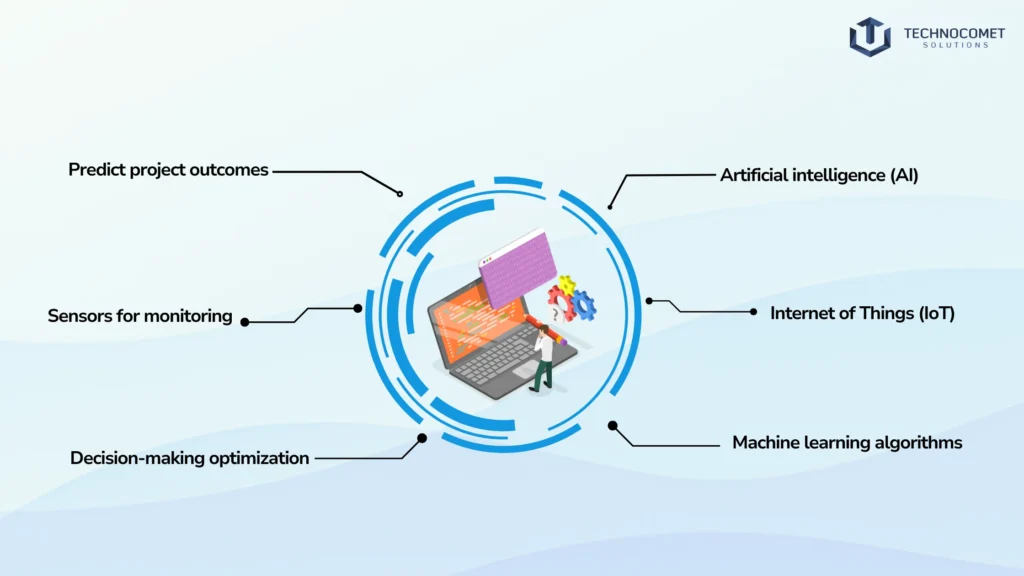
Successful Implementation of Construction Software
Numerous case studies illustrate the transformative impact of construction software across diverse projects. From large-scale infrastructure developments to small to medium-sized construction firms, the adoption of software solutions has yielded tangible benefits. Real-world examples showcase accelerated project timelines, reduced costs, improved accuracy, and enhanced client satisfaction.
Future Trends and Innovations in Construction Software Development
Looking ahead, the future of construction software development is brimming with possibilities. integration of artificial intelligence and machine learning algorithms promises to optimize decision-making processes, predict project outcomes, and automate routine tasks. Furthermore, the advent of Internet of Things (IoT) technology heralds a new era of connectivity, enabling smart construction sites equipped with sensors for monitoring equipment, materials, and environmental conditions. Additionally, there is a growing emphasis on sustainability-focused software solutions, empowering stakeholders to minimize environmental impact and embrace eco-friendly practices in construction projects.
Conclusion
Software development solutions are reshaping the landscape of construction, ushering in an era of innovation, efficiency, and sustainability. By embracing these technologies, stakeholders can build the future of construction with confidence, paving the way for smarter, safer, and more sustainable built environments.
Join us at TechnoComet Solutions to revolutionize your construction practices with innovative software solutions. Let’s build a future of efficiency, sustainability, and success together. Contact us today!
FAQs
Traditional construction methods often suffer from manual processes that lead to delays, errors, and increased costs due to inefficiencies in resource allocation and scheduling.
Software development solutions streamline project management processes by enabling efficient resource allocation, scheduling, and progress tracking. They also facilitate seamless communication and collaboration among stakeholders, enhancing transparency and accountability.
Construction software offers a range of tools and functionalities, including project scheduling and planning tools for realistic timelines, Building Information Modeling (BIM) software for 3D visualization and clash detection, and mobile applications for on-site management.
The future of construction software development includes the integration of artificial intelligence and machine learning for decision-making and automation, the adoption of Internet of Things (IoT) technology for smart construction sites, and a growing emphasis on sustainability-focused solutions to minimize environmental impact.

